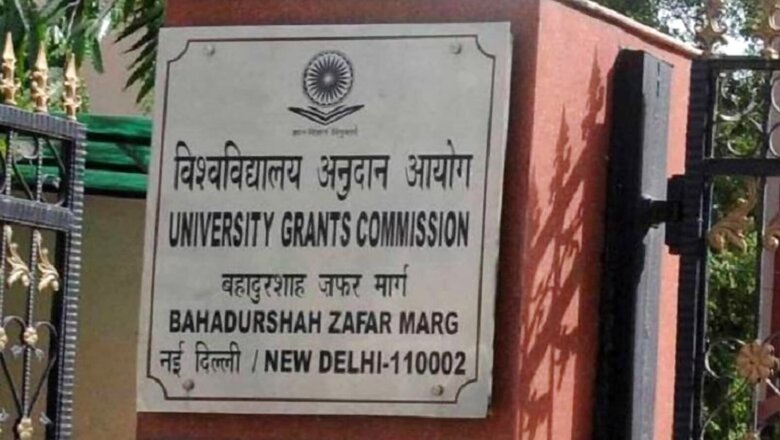
views
It has been widely accepted that research is a critical element of higher education and publishing a research paper is even more important for institutionalising the significance of academics in higher education. Research paper, for long, has been considered the most essential part of academics. No academic in higher education is complete without an appropriate methodology and significant paradigms. These elements help every scholar, researcher, and academician to thoroughly evaluate or re-examine the subject.
On 28 November 2018, University Grants Commission (UGC) issued a public notice “to stimulate and empower the Indian academia” through its quality mandate.
The notice also announced the establishment of a dedicated Consortium for Academic and Research Ethics (CARE) to fulfil this objective. There is a need to evaluate the objectives of this initiative where it intends: (i) to promote quality research, integrity and publication ethics; (ii) to promote high-quality publication; (iii) to develop research paradigms and methodology for the identification of standard journals; and, (iv) to stop the predatory or dubious journals. Since then, there has been a massive academic research revolution, and an unexpected mad race for publishing research paper(s) in UGC CARE Listed Journals.
But unfortunately, these listed journals have brought many severe shifts in the publication process. The shift allows the researchers to indulge in many illegalities, such as publishing research papers in dubious journals. We now know these journals with a new form, i.e., Clone Journals. There are many instances where one can easily trace the clone of listed journals in the academic world. Researchers publish their papers in most educational institutions (including leading universities and colleges) without knowing its worst impact. They are publishing their papers for the minimum eligibility to submit their PhD thesis and dissertations, faculties are publishing their papers for their due promotions and salary hike, etc.
As a matter of fact, UGC has made an effort to put strict restrictions on these clone journals. Still, faculties, those eager to get their due promotions, are publishing their papers on these clone journals without knowing the authenticity and standards of these journals. It has come to public notice that many faculties and researchers have published their papers, though sometimes intentionally, in clone journals, especially in language specification journals; for instance, foreign language journals are published multilingually in clone format.
And many instances have come to public notice where many publishers and editors are publishing the papers with password-protected mechanisms and publishing the papers as under ‘multidisciplinary’ despite being subject-specific journals. This process of publishing papers in listed journals have also supported the idea of introducing the ‘clone’ journals because it has been widely noticed those who are in listed categories, are charging huge amount for the publication of a single paper, whereas, on the other hand, many leading listed journals are forcing the researchers to subscribe their journals or to take their lifetime membership for publishing their research papers.
And even after subscribing to the journals, they are taking huge time to publish the research papers, and this time-consuming process is somehow accepting the calls from the clone journals to publish the research papers. And, as stated earlier, many faculties don’t bother to rectify the standard and authenticity of the same because they are in the process of the mad race to get the (academic) promotion.
Above all, some leading journals publish research papers strictly based on ideological shifts. If we are talking about the standard of academics through this consortium, we must first stop this ‘marketisation of academics’. Therefore, if UGC needs to maintain the standard, integrity, and high-quality research journals, then it is imperative to revisit the process of allocating and categorising the journals in the CARE list. Furthermore, it would be better to issue a public notice that will strictly direct the universities and colleges to verify the research journals’ authenticity for higher academics and academic promotions.
The writer is Assistant Professor in Sri Aurobindo College, University of Delhi. Views expressed are personal.
Read the Latest News and Breaking News here
















Comments
0 comment